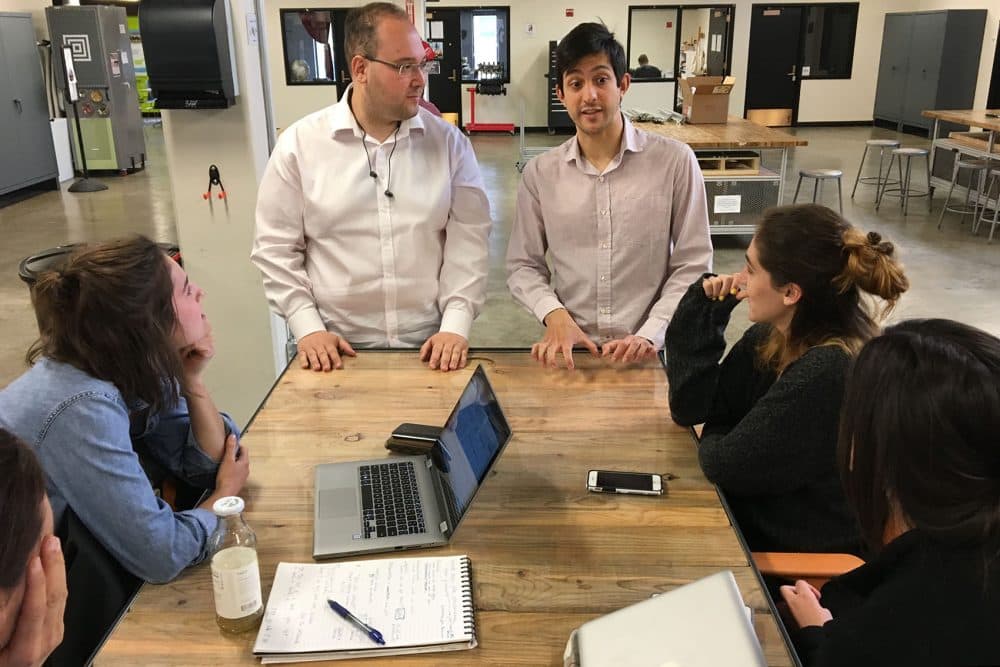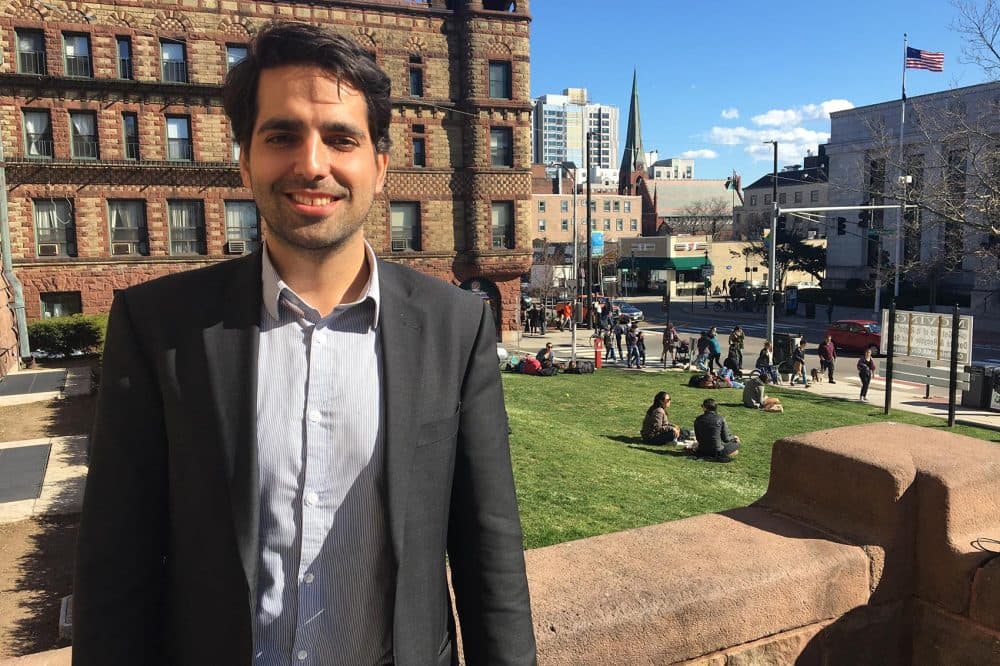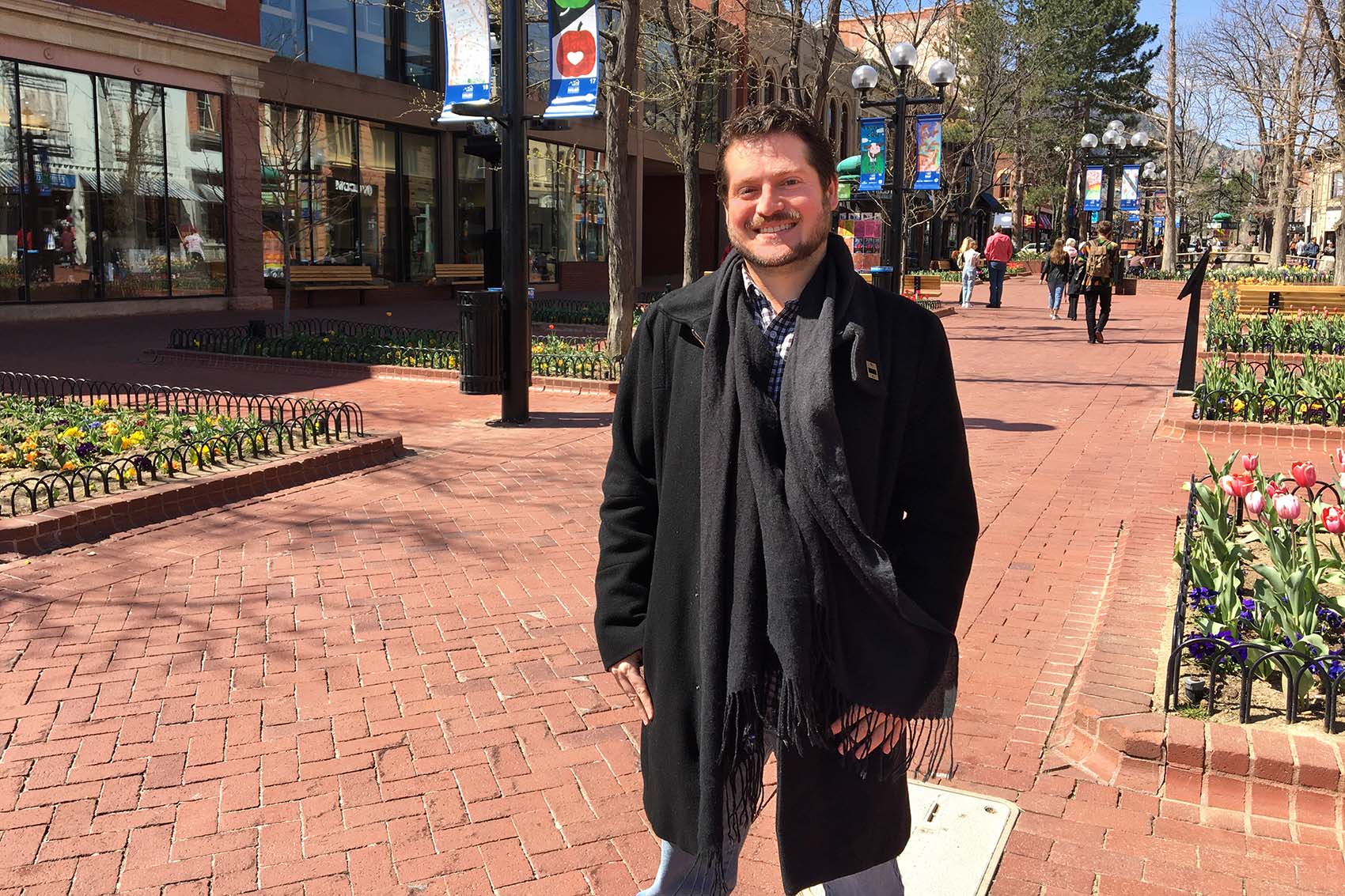Advertisement
How A Mass. Visa Workaround Became A Popular Alternative For Foreign Entrepreneurs
Resume
Shortly after Paulo Melo graduated with his Ph.D. from MIT, he co-founded doDOC, a startup that helps life science and pharmaceutical companies streamline communication.
Melo grew up in Portugal. He's not an American citizen, he only came to the United States for grad school; but he wanted to stay in Boston because he thought it was the ideal place to grow his infant business.
"Boston is one of the hubs in the world, where you have the most biotech companies, pharma companies...hospitals, research centers, so it made total sense to come here," Melo says.
But even if it made "total sense" intellectually, it didn't necessarily make sense logistically.
Employers can typically sponsor work visas, but Melo was his own employer — he didn't have anyone to sponsor him.
There are dozens of visas for foreigners to come to the United States, but there is no visa for a foreigner who wants to start a company in the country.
Although immigration advocates say about half of the most lucrative startups in America were founded by immigrants, it's still complicated — if not impossible — for a foreign entrepreneur to launch a company legally in the United States. For years, tech entrepreneurs have lobbied for a so-called "startup visa," but no such visa exists.
"There’s a lot of things in motion when you’re building a company, you're learning a lot. And at the same time, you have to deal with your visa...it takes a lot of your time and energy," Melo says. "There are some days where you feel like it’s too much and you have to put [in] the hours and you don’t sleep."
Melo eventually heard about this wonky workaround at the University of Massachusetts Boston called the Global Entrepreneur-in-Residence program.
It began as an experiment with the state of Massachusetts in 2014. There were two participants that first year.
Since then, it has expanded to roughly three dozen people. And in the absence of a legal federal "startup visa," the Massachusetts idea has become the de facto replacement. In the last couple of years, it has spread to five other states and essentially become a model for the tech community nationwide.
Melo joined the program last year and he says it has fundamentally changed his life.
"Otherwise, I wouldn't have been here," Melo says. "I couldn’t have done what I’ve done at a personal level, at a professional level."

The UMass program gave him a way to stay in the country legally.
Here's how it works: The university sponsors Melo on an H-1B visa. Those are the visas traditionally allocated for high-skilled workers. They're capped for tech companies but not for universities.
Technically, Melo's employer is UMass Boston; the university sponsors his visa. That visa allows him to informally keep building his business in the U.S. And in exchange for the visa, entrepreneurs like Melo agree to mentor students or teach classes on campus.
This entire workaround is the brainchild of Jeff Bussgang, a venture capitalist in Boston.
"I was seeing all of these terrific entrepreneurs from overseas be inspired by our innovation ecosystem," Bussgang says, "and yet when they wanted to start a company, we were telling them they were not allowed to stay."
Making The 'Runway' Longer For Entrepreneurs
Bussgang initially focused on Massachusetts, but quickly noticed an appetite for his visa model in other states.
The program is now in six states (Massachusetts, Colorado, Missouri, Alaska, Illinois and California) with 13 university partners.
"You see a lot of people who could be entrepreneurs choosing not to because they see the visa system as being unfriendly," Craig Montuori says. He's the man responsible for taking the Massachusetts model across the country — a political junkie and former software engineer who's now the executive director of the Global EIR Coalition. Montuori is also in conversations with colleges and universities in Minnesota, Wisconsin, Indiana and Ohio.
"If you go to an investor, and you say 'I’ve got an idea, I’d like you to invest in it.' The investor says this one classic question: 'What’s your runway?' " Montuori says. "What that means is how much time do you have before your business typically runs out of money. But in the case of entrepreneurs, runway has an additional question: When does your visa expire? When will you have to leave the country?"
Montuori says it's nearly impossible for a company to be adequately funded without a visa. And without funding, a company can't survive. Montuori sees the Global EIR as the best legal visa path for an early-stage company founded by a foreigner.
On the other hand, he also sees colleges and universities wanting to attract global talent and "teach" entrepreneurship, but unsure how to effectively do that.
"What most of these centers for entrepreneurs have lacked is early-stage founders to serve as mentors," Montuori says. So he says the international founders in the Global Entrepreneurship-in-Residence programs help solve that problem.

Julien Denaes, 34, from Switzerland, first came to Boulder, Colorado, for his wife's education. The springtime snow-capped mountains that surround the campus kind of resemble home, but he quickly realized the tech ecosystem was completely different.
"Here in the U.S. ... the market just goes extremely faster for everything from fundraising, from go-to-market, from access to mentors," Denaes says. "The pace is just completely different here in the U.S."
Denaes started a company called Logrr, which provides cloud cybersecurity solutions, in essence allowing you to connect to cloud-based applications without passwords.
And he applied for the Global EIR program. Colorado was the second state in the country to launch a visa program for startups. It's a carbon copy of the Massachusetts strategy.
Denaes was accepted and has been working in Boulder, but for months, his co-founder stayed behind, living in Switzerland.
"We have been working remotely. So waking up at 4 a.m. and having eight hours difference," Denaes says.
Sure, sometimes he's tired, but Denaes says he doesn't mind the crazy schedule — he'd rather work in the United States.
He sees himself as helping the American economy.
Is It A 'Hack' Or Ingenuity?
Of course, not everyone sees it that way. The global entrepreneur program has its critics. The idea of "hacking" the immigration system rubs some people the wrong way.
Iowa Sen. Chuck Grassley, for example, the chairman of the Senate Judiciary Committee, has suggested that foreigners are colluding with U.S. universities. In a letter to the director of U.S. Citizenship and Immigration Services (USCIS) last year, he referred to the Global Entrepreneur-in-Residence program as a "cynical exploitation of loopholes in the law."
In January, just days before President Obama left the White House, his administration decided to tackle the issue head on with the International Entrepreneur Rule. Essentially, it's a legal way for startup founders from foreign countries to stay in the U.S. (It wouldn't have solved the problem for early-stage entrepreneurs because it sets up a funding threshold, but advocates say it was a step in the right direction.)
The rule is supposed to go into effect this July, but it's unclear if that will happen under the Trump administration.
A spokeswoman for USCIS said "the department is reviewing the rule in accordance with administration policy."
Another way to permanently solve the visa workaround debate could be through some sort of comprehensive immigration reform. But Bussgang, the Boston venture capitalist who initially conceived the Global EIR idea, is skeptical about that possibility.
"Under this administration, where there’s no hope for reform that I see, this program is the only hope for immigrant entrepreneurs," Bussgang says.
As for Melo, the MIT graduate from Portugal, he found out a few weeks ago that he has some additional hope.
"I applied to the EB-1 visa — the extraordinary ability visa. And I just got a confirmation that I got approved," he says.
So in lieu of any clear-cut visa path for entrepreneurs, Melo's experience, forged through the Massachusetts workaround, might be the most realistic model: Work with a university and then eventually try to snag a visa for "extraordinary abilities."
Correction: An earlier version of this story misspelled Paulo Melo's first name. We regret the error.
This article was originally published on May 01, 2017.
This segment aired on May 1, 2017.
